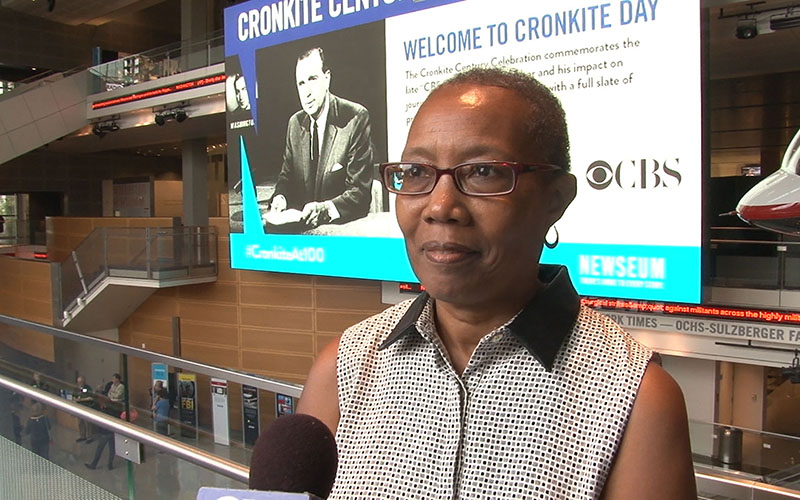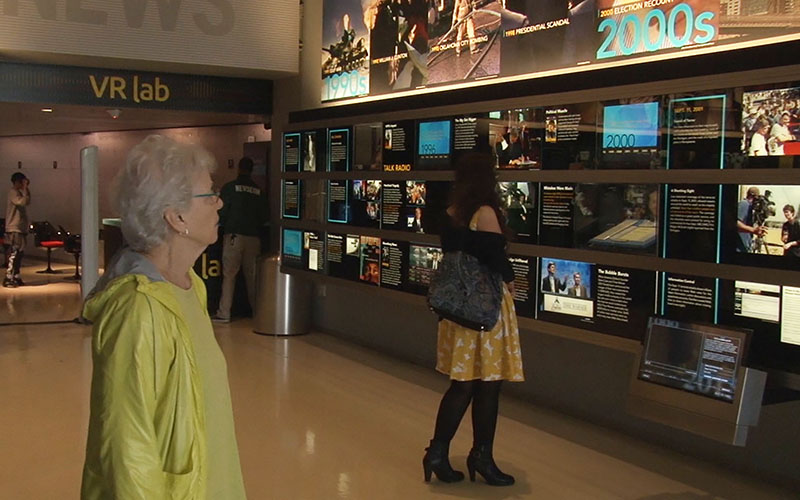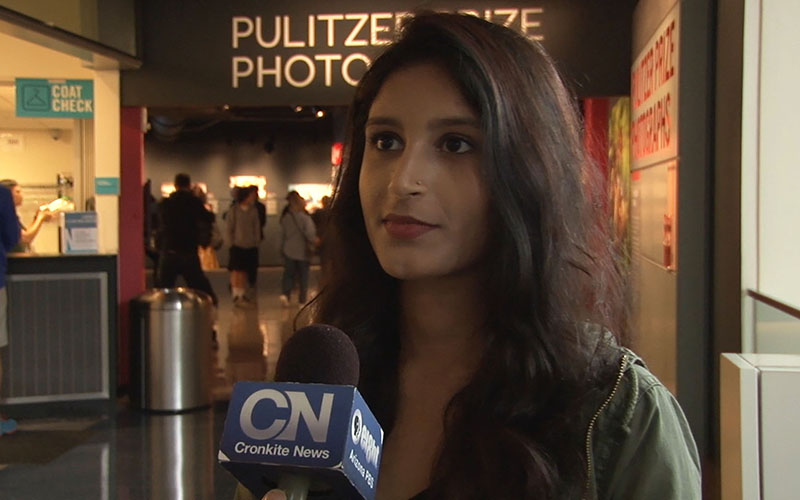
Sharon Shahid, the Newseum’s director of editorial content for video and interactive, said the public had a great deal more trust in reporters in Walter Cronkite’s day. (Photo by Claire Caulfield/Cronkite News)

Visitors check out some of the exhibits at the Newseum in Washington, which hosted an event Thursday marking the 100th anniversary of Walter Cronkite’s birth. (Photo by Claire Caulfield/Cronkite News)

Maryam Majid, a Northern Virginia high school student, said she wonders if it would be possible in the current fractious political landscape to have one media voice trusted by most Americans. (Photo by Claire Caulfield/Cronkite News)
WASHINGTON – A 24-hour news cycle. Social media giving newsmakers a direct connection to the public that can bypass the press. The blending of political pundits and reporters analyzing day-to-day political dramas.
Americans consume news much differently in 2016 than they did when families gathered around the television to hear Walter Cronkite explain “the way it is” on the CBS Evening News.
Confidence in the media “to report the news fully, accurately and fairly” is at an all-time low, according to a September Gallup poll that found less than a third of Americans have “a great deal” or “fair amount” of confidence in the industry. Those were the lowest marks for media since Gallup began asking the question in 1972.
As media consumption changes, the industry faces obstacles that weren’t envisioned when Cronkite manned the desk, said experts at a Newseum event Thursday celebrating the 100th anniversary of the newsman’s birth.
“Back when Cronkite was at his height of his popularity there were only three networks,” said Sharon Shahid, the Newseum’s director of editorial content for video and interactive. “Now there are four networks and cable outlets and news is broadcast over so many different platforms … and that’s not even including, Facebook, Twitter and all the other social media platforms.”
-Cronkite News video by Claire Caulfield
It’s unclear if America’s relationship to its newsmen and women will continue to decline or if another transcendent figure will emerge, But Newseum visitors Thursday said they hope another iconic figure would one day command the attention of the nation.
“I don’t think he’s ever been matched,” Shahid said. “He was the most trusted man in America back then – not the most trusted anchorperson, the most trusted man.”
That history was lost on Maryam Majid, an 18-year-old who was visiting the Newseum with her classmates from Rock Ridge High School in Northern Virginia.
Majid, who is an editor of her school’s paper, said she has never heard people her age mention Cronkite’s legacy. But she wondered if current apparent biases in media coverage would make it harder for all Americans to agree on trusting the same person.
“I think that it would be nice to have someone that everyone would look up to, but it kind of just depends on what people want, and if the person actually supports their viewpoints,” Majid said.
Another Newseum visitor said the distrust of the media might be linked to the larger divide in the nation.
“I think the country is so politically polarized, I don’t know if it’s because of journalism or if journalism has becomes polarized because of the mood in the country,” said Peter Rosen, an anesthesiologist from Los Angeles.